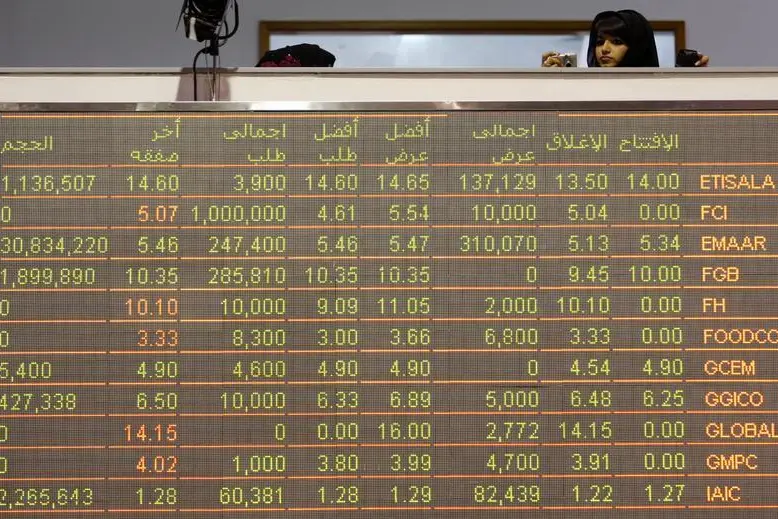PHOTO
Most Gulf stock markets looked set to post weekly gains, even as major indexes fell in early trade on Thursday, weighed down by weakness in Asian shares and oil prices.
MSCI's broadest index of Asia-Pacific shares outside Japan was down 0.48%, after a surprise interest rate hike by the Bank of Canada brought back fears that U.S. rates could stay higher for longer and the Federal Reserve could remain hawkish when it meets next week.
Most Gulf currencies are pegged to the dollar and any monetary policy change in the United States is usually mimicked by Saudi Arabia, the United Arab Emirates and Qatar.
Dubai's main share index dropped 0.2% and was on course to snap nine straight sessions of gains, with blue-chip developer Emaar Properties losing 1.6%.
In Abu Dhabi, the benchmark stock index eased 0.3%.
Oil prices - a key catalyst for the Gulf's financial market - dipped as worries about weakening demand due to the global economic slowdown overshadowed a pending fall in supply with Saudi Arabia's pledged output cuts.
The Qatari stock index index retreated 0.7%.
Saudi Arabia's benchmark index was flat, but on track to register its first weekly gain in four weeks.
The International Monetary Fund (IMF) expects growth in Saudi Arabia to slow to 2.1% in 2023 on the back of OPEC+ production cuts announced in April, it said on Wednesday, lower than its forecast released in May.
(Reporting by Ateeq Shariff in Bengaluru; Editing by Subhranshu Sahu)




















